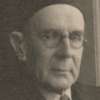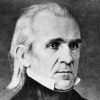To know a person’s religion we need not listen to his profession of faith but must find his brand of intolerance.
Eric Hoffer (1902-1983) American writer, philosopher, longshoreman
Passionate State of Mind, Aphorism 215 (1955)
(Source)
Quotations about:
creed
Note not all quotations have been tagged, so Search may find additional quotes on this topic.
There can be nothing more utterly subversive of all that is really valuable than the suppression of honest thought. No man, worthy of the form he bears, will at the command of church or state solemnly repeat a creed his reason scorns.
Robert Green Ingersoll (1833-1899) American lawyer, freethinker, orator
Lecture (1873-12) “Individuality,” Chicago Free Religious Society
(Source)
Full title "Arraignment of the Church and a Plea for Individuality." Collected in The Gods and Other Lectures (1876)
A trial for heresy means that the spirit of persecution still lingers in the church; that it still denies the right of private judgment; that it still thinks more of creed than truth, and that it is still determined to prevent the intellectual growth of man. It means that churches are shambles in which are bought and sold the souls of men. It means that the church is still guilty of the barbarity of opposing thought with force. It means that if it had the power, the mental horizon would be bounded by a creed; that it would bring again the whips and chains and dungeon keys, the rack and fagot of the past.
Robert Green Ingersoll (1833-1899) American lawyer, freethinker, orator
Lecture (1874-05-03), “Heretics and Heresies,” Free Religious Society, Kingsbury Hall, Chicago
(Source)
Collected in The Gods and Other Lectures (1876).
Hell is wherever Love is not, and Heaven
Is Love’s location. No dogmatic creed,
No austere faith based on ignoble fear
Can lead thee into realms of joy and peace.
Unless the humblest creatures on the earth
Are bettered by thy loving sympathy
Think not to find a Paradise beyond.There is no sudden entrance into Heaven.
Slow is the ascent by the path of Love.Ella Wheeler Wilcox (1850-1919) American author, poet, temperance advocate, spiritualist
Poem (1906), “The Way,” ll. 5-13, New Thought Pastels
(Source)
I once heard an orthodox person denouncing those who discuss articles of faith. “Gentlemen,” he said naïvely, “a true Christian does not examine what he is ordered to believe. Dogma is like a bitter pill: if you chew it, you will never be able to swallow it.”
[J’ai entendu un dévot, parlant contre des gens qui discutent des articles de foi, dire naïvement: «Messieurs, un vrai chrétien n’examine point ce qu’on lui ordonne de croire. Tenez, il en est de cela comme d’une pillule amère, si vous la mâchez, jamais vous ne pourrez l’avaler.»]
Nicolas Chamfort (1741-1794) French writer, epigrammist (b. Nicolas-Sébastien Roch)
Products of Perfected Civilization [Produits de la Civilisation Perfectionnée], Part 2 “Characters and Anecdotes [Caractères et Anecdotes],” ¶ 1148 (1795) [tr. Hutchinson (1902)]
(Source)
(Source (French)). Alternate translations:I heard one day a devotee, speaking against people who discuss articles of faith, say naivement: "Gentlemen, a true Christian never examines what he is ordered to believe. It is with that as with a bitter pill; if you chew it you will never be able to swallow it."
[tr. Mathews (1878)]I once heard a pious person say naively, in arguing with people who were discussing articles of faith, "Sirs, a true Christian does not examine what he is instructed to believe. You see, it's like a bitter pill -- if you chew it, you'll never be able to swallow it."
[tr. Dusinberre (1992), ¶1148]A devout and naïve Christian was admonishing those who questioned the articles of faith. "A true Christian must never examine the things he's told to believe, gentlemen," he said. "It's like taking a pill: if you chew it, it's so bitter you'll never get it down."
[tr. Parmée (2003), ¶363]
Thoze people who are trieing to git to heaven on their kreed will find out at last that they didn’t hav a thru ticket.
[Those people who are trying to get to heaven on their creed will find out at last that they didn’t have a through ticket.]
Josh Billings (1818-1885) American humorist, aphorist [pseud. of Henry Wheeler Shaw]
Josh Billings’ Trump Kards, ch. 9 “The Ram and Crawfish” (1874)
(Source)
What we commonly have in our mind when we speak of religion is a definite set of doctrines, of a more or less metaphysical character, formulated in a creed and supported by an organization distinct from the state. And the first thing we have to learn about the religion of the Greeks is that it included nothing of the kind. There was no church, there was no creed, there were no articles. Priests there were, but they were merely public officials, appointed to perform certain religious rites. The distinction between cleric and layman, as we know it, did not exist; the distinction between poetry and dogma did not exist; and whatever the religion of the Greeks may have been, one thing at any rate is clear, that it was something very different from all that we are in the habit of associating with the world.
G. Lowes Dickinson (1862-1932) British political scientist and philosopher [Goldsworthy "Goldie" Lowes Dickinson]
The Greek View of Life, ch. 1 “Religion,” sec. 1 (1911)
(Source)
I told him that, thank God, under our constitution there was no connection between Church and State, and that in my action as President of the U.S. I recognized no distinction of creeds in my appointments to office.
James K. Polk (1795-1849) American lawyer, politician, US President (1845-1849)
Diary (1846-10-14 )
(Source)
The reason ours is a creedless faith is because we have a theory about Creation and our theory — unlike that of most religious traditions — is that Creation is too grand, too glorious, too complex and too mysterious to be captured in any narrow creed or reflected in any single metaphor. It is exactly because we so cherish the world in all its multi-hued grandeur that we resist the temptation to see it through only one lens. Our conviction is that we will come a little closer to the truth about the world — and certainly be more receptive to its splendour if we set a variety of vehicles to apprehend it: all the world’s great religious traditions, for example, but also the sciences, the secular arts, the disciplines of mysticism, and the electric touch of love.
William F. "Bill" Schulz b. 1949) American Unitarian Universalist minister and activist
Finding Time & Other Delicacies (1992)
(Source)
Think not the faith by which the just shall live
Is a dead creed, a map correct of heaven,
Far less a feeling fond and fugitive,
A thoughtless gift, withdrawn as soon as given.
It is an affirmation and an act
That bids eternal truth be present fact.Hartley Coleridge (1796-1849) English poet, biographer, essayist, teacher
“The Just Shall Live By Faith”
(Source)
There lies at the back of every creed something terrible and hard for which the worshipper may one day be required to suffer.
E. M. Forster (1879-1970) English novelist, essayist, critic, librettist [Edward Morgan Forster]
“What I Believe,” The Nation (16 Jul 1938)
(Source)
It is a truism that almost any sect, cult, or religion will legislate its creed into law if it acquires the political power to do so, and will follow it by suppressing opposition, subverting all education to seize early the minds of the young, and by killing, locking up, or driving underground all heretics. This is equally true whether the faith is Communism or Holy-Rollerism; indeed it is the bounden duty of the faithful to do so. The custodians of the True Faith cannot logically admit tolerance of heresy to be a virtue.
Robert A. Heinlein (1907-1988) American writer
“Concerning Stories Never Written” (Oct 1952)
(Source)
If I should try to say anew the creed of the Optimist, I should say something like this: “I believe in God, I believe in Man, I believe in the power of the spirit, I believe we should so act that we may draw nearer and more near the age when no man shall live at his ease while another suffers.”
He that will believe only what he can fully comprehend, must have a very long head, or a very short creed.
Charles Caleb "C. C." Colton (1780-1832) English cleric, writer, aphorist
Lacon: Or, Many Things in Few Words, Vol. 1, § 470 (1820)
(Source)
Here is my Creed: I believe in one God, Creator of the Universe. That He governs it by his Providence. That he ought to be worshipped. That the most acceptable Service we can render to him, is doing Good to his other Children. That the Soul of Man is immortal, and will be treated with Justice in another Life respecting its Conduct in this. These I take to be the fundamental Principles of all sound Religion, and I regard them as you do, in whatever Sect I meet with them.
Benjamin Franklin (1706-1790) American statesman, scientist, philosopher, aphorist
Letter to Ezra Stiles (9 Mar 1790)
(Source)
I believe in one God, and no more; and I hope for happiness beyond this life.
I believe in the equality of man; and I believe that religious duties consist in doing justice, loving mercy, and endeavouring to make our fellow-creatures happy.
But, lest it should be supposed that I believe many other things in addition to these, I shall, in the progress of this work, declare the things I do not believe, and my reasons for not believing them.
I do not believe in the creed professed by the Jewish Church, by the Roman Church, by the Greek Church, by the Turkish Church, by the Protestant Church, nor by any church that I know of. My own mind is my own church.
All national institutions of churches, whether Jewish, Christian or Turkish, appear to me no other than human inventions, set up to terrify and enslave mankind, and monopolize power and profit.
Thomas Paine (1737-1809) American political philosopher and writer
The Age of Reason, Part 1, ch. 1 (1794)
(Source)
I will not attack your doctrines nor your creeds if they accord liberty to me. If they hold thought to be dangerous — if they aver that doubt is a crime, then I attack them one and all, because they enslave the minds of men.
Robert Green Ingersoll (1833-1899) American lawyer, freethinker, orator
“The Ghosts” (1877)
(Source)
Most of the members of the convent were old-fashioned Satanists, like their parents and grandparents before them. They’d been brought up to it and weren’t, when you got right down to it, particularly evil. Human beings mostly aren’t. They just get carried away by new ideas, like dressing up in jackboots and shooting people, or dressing up in white sheets and lynching people, or dressing up in tie-dye jeans and playing guitars at people. Offer people a new creed with a costume and their hearts and minds will follow.
Terry Pratchett (1948-2015) English author
Good Omens, 2. “Eleven Years Ago” (1990) [with Neil Gaiman]
(Source)
Atheism is the theory that there is no God. Now one kind is a theoretical kind, where someone just sits down and starts thinking about it, and they come to a conclusion that there is no God. The other kind is a practical atheism, and that kind goes out of living as if there is no God. And you know there are a lot of people who affirm the existence of God with their lips, and they deny his existence with their lives. You’ve seen these people who have a high blood pressure of creeds and an anemia of deeds.
I have made up my mind that if there is a God, he will be merciful to the merciful.
Upon that rock I stand.
That he will not torture the forgiving.
Upon that rock I stand.
That every man should be true to himself, and that there is no world, no star, in which honesty is a crime.
Upon that rock I stand.
The honest man, the good woman, the happy child, have nothing to fear, either in this world or the world to come.
Upon that rock I stand.Robert Green Ingersoll (1833-1899) American lawyer, freethinker, orator
“What Must We Do to Be Saved?” Sec. 11 (1880)
(Source)
Reason, Observation and Experience — the Holy Trinity of Science — have taught us that happiness is the only good; that the time to be happy is now, and the way to be happy is to make others so. This is enough for us. In this belief we are content to live and die. If by any possibility the existence of a power superior to, and independent of, nature shall be demonstrated, there will then be time enough to kneel. Until then, let us stand erect.
It is bad religion to deify doctrines and creeds. While indispensable to religious life, doctrines and creeds are only so as signposts. Love alone is the hitching post. Doctrines, let’s not forget, supported slavery and apartheid; some still support keeping women in their places and gays and lesbians in limbo. Moreover, doctrines can divide while compassion can only unite. In other words, religious folk, all our lives, have both to recover tradition and to recover from it.
William Sloane Coffin, Jr. (1924-2006) American minister, social activist
Credo, “Faith, Hope, Love” (2004)
(Source)
What a man believes may be ascertained, not from his creed, but from the assumptions on which habitually acts.
George Bernard Shaw (1856-1950) Irish playwright and critic
Man and Superman, “The Revolutionist’s Handbook,” “Religion” (1903)
(Source)



















